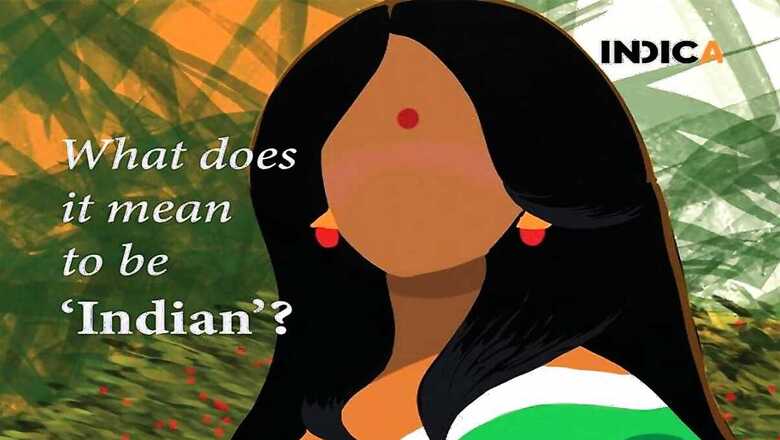
views
Cultures, traditions and civilisations are the most beautiful creation of humans. Throughout our history, we humans have weaved these organisational structures, ways of living and being, for ourselves, and remain soaked in the ethereal essence of our life worlds. The traditions that we practice and the cultural spaces that thrive on such traditions are much more than markers of cultural identity. Traditional practices are ways of knowing, learning and generating a distinct experience of the world around us. They serve as systematic knowledge forms, capable of knowledge production, retainment and dissemination. It’s the intricately woven clusters of traditional practices which we identify as our own knowledge systems, and it’s eventually the knowledge systems which form the backbone and serve as the carriers of civilisation. Any rupture or breakaway with its knowledge systems is an alarm bell about the eventual doom of civilisation.
It has been observed by several scholars and thinkers that colonialism is a viciously disruptive phenomenon because it induces a fundamental disconnect of the colonised from their traditions and knowledge systems. It distorts, and oftentimes totally destroys the means available to colonised people to access their knowledge ‘configurations’. The distortions of one’s learning processes and knowledge configurations lead to the erosion of traditions and practices passed over generations, resulting in a consequent loss of identity and understanding of the self. The inability to access one’s own traditions, and lack of knowledge about one’s culture, leads to a serious identity crisis in a community’s collective psyche. It is this crisis which Professor Dr S.N. Balagangadhara (lovingly called ‘Balu’ by his colleagues and students) and his research group have been attempting to understand and address for quite some time now. Over more than four decades, Balu has conceptualised a research programme called the ‘Comparative Science of Cultures’ aimed at “decolonising social sciences as an intellectual and cognitive project spanning multiple generations”. As a part of this project, Prof Balu authored a book titled ‘What does it mean to be ‘Indian?’, in collaboration with his research colleague Sarika Rao. The book has been authored “for an intelligent but non-academic public”, and it gives out some of the theories and hypotheses developed by the research group over the past few decades.
A central concern of the book is to highlight the difference between tradition and religion, which is done by evolving a theory of cultural differences. A comparative study of cultures provides insights into the fundamental differences between traditions and religions. This study is carried on with an acknowledgement of the role of stories in a culture as “units of learning” and “modes of transmission of knowledge”. The book notes that human beings create various “resources of socialisation” in order to sustain themselves as a culture, and argues that cultural differences may be located in “how these resources are utilised or used and in the identification of these resources”.
A keen observation and experience of the Indian culture helps us understand the nature of traditions. The book explains traditions as “inherited practices” which are transmitted over generations through a multitude of ways. As traditions are passed down the generations, they change with slight “modifications” and are “flexible and adaptive”, while being “essentially conserving in their nature”. Another significant aspect of traditions is that they are practiced without the need for supposedly logical, coherent explanations for their following and justification. As the author puts it, “the only reason to practice a tradition is the fact that what is practiced is a tradition, and that is what it means, as it has always meant, to be a Hindu”. The lack of a need for justifying traditional practices doesn’t automatically imply the approval of all practices in the garb of traditions, rather it only indicates that “reason functions as a brake on excesses of human practice” and may be invoked to “abandon or modify a practice” where required.
In stark contrast, as convincingly explained in the book, the practice of religions is based on reason. The author argues that: “A Jew, a Christian and a Muslim worship their Biblical God in certain ways because this God has imposed on them the obligation to do so… Thus, according to them, we exist on Earth for one and one reason only; to worship and obey (the Biblical) God. That is the sole purpose of human existence. If people fail to do so, they go to Hell for all eternity.”
Thus, the continuation of practice of a religion is driven by a reason at the core, notwithstanding any questions that could be raised about the logical coherence and plausibility of the reason itself. Another crucial aspect discussed about religions is the absolute ‘truth’ value of their claims. As stated by the author, “The claims of these religions must be true if they are to remain religions at all. There are two important aspects to this: (a) the followers of these religions need to believe these claims; (b) they believe them because these claims are true. ‘Truth’ appears as a sensible predicate with respect to religion.”
It’s not possible to grasp the nature of traditions without fully understanding the impact of colonialism on them. The book notes the centrality of experience and reflects on one’s experience of Indian traditions. Our traditions have evolved learning processes to reflect on experience without such ‘reflection’ being necessarily followed by ‘introspection’ as well. This gives us a direct access to our experience and a clear conception of our culture. The book puts forth the scientific hypothesis that colonialism denies us access to our experience and “our theories about people, society and nature, by arresting their transmission, by breaking the unity that was established between these theories and our daily experience”. Thus, the colonisers’ experience of our culture is imposed on us, such that “the existing descriptions of Indian society and culture are Western cultural descriptions of the experience of an alien culture”, and these descriptions are internalised by us (the colonised) as well.
Perhaps the most significant theoretical hypothesis developed in the course of Prof Balu’s research project (and also presented in this book) is about the secularisation of religion and the expansion-cum-universalisation of religious ideas in their secularised forms. The hypothesis leads us to a grave inference – “the secularisation of Christian ideas” has led to the emergence of most of the Western social sciences as ideas seeped into Christian theology. Secularised Christian ideas forming the basis of social sciences, as we know it today, imply that these subjects are peddling theological ideas masquerading as scientific research, and this inference strikes at the very roots of the study of social sciences. It also suggests the need for decolonising social sciences such that our research goes beyond presenting the experience of Western culture as scientific research and allows the possibility of producing authentic research and knowledge about other cultures and traditions as well.
This book is a critical contribution to decolonisation studies and opens up multiple avenues for further research on developing knowledge about traditions. It emerges out of a research programme that has the potential to shake the very foundations of Western social sciences and directs an urgent need to revamp our approach to knowledge creation. It is surely a must-read for every thinking Indian.
The author is a B.A. LLB. (Hons.) graduate from Jindal Global Law School (JGLS) and has previously worked as a Graduate Research Immersion Program Scholar at JGLS. Views expressed are personal.
Read all the Latest Opinions here

















Comments
0 comment